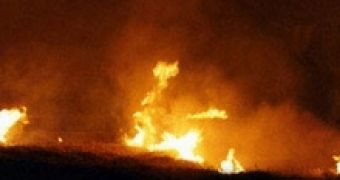Pre-industrial humans may have had a much bigger effect on the atmosphere than previously thought.
This surprising finding is one result of research into atmospheric methane published today in the journal Science.
Methane is a potent greenhouse gas, which is believed to contribute to global climate change. The new discovery came as scientists tried to pinpoint the cause of changes in the amount of methane in the atmosphere over recent centuries.
The research team comprised scientists from New Zealand, Australia, and the United States. It was led by Dr Dominic Ferretti, who is based at New Zealand's National Institute of Water & Atmospheric Research (NIWA) and is also affiliated to the University of Colorado, US.
The scientists used ice cores that were drilled from Law Dome in Australian territory, East Antarctica, and analysed minute quantities of methane that were extracted from tiny air bubbles trapped deep in the ice cores.
The scientists traced the origins of this methane using measurements of the carbon isotopes in the methane and atmospheric models. They showed that the overall amount of methane in the atmosphere was relatively stable until the industrial age, but the source of that methane varied dramatically.
'Looking at the last 2000 years, we've found much higher than expected levels of methane from forest and grassland fires until about 1000 years ago when these emissions began to drop dramatically,' said the paper's lead author, Dr Dominic Ferretti, of NIWA. 'This tallies well with both natural climate change and human land use.'
The analysis suggests that over the period 0-1500 AD, the indigenous population of the Americas regularly burned grassland and woodland areas for agriculture and hunting. But the indigenous population plummeted after European explorers arrived, and accordingly so did the extent of the burning and its methane by-product. The results also indicate that methane emissions from wildfires are likely to be higher during warm and dry periods, such as El Ni?o events, and may therefore increase with future climate change.
This week, Softpedia News enters the Battle of Browsers. Which do you think is the best browser? Vote for your favorite browser.

 14 DAY TRIAL //
14 DAY TRIAL //